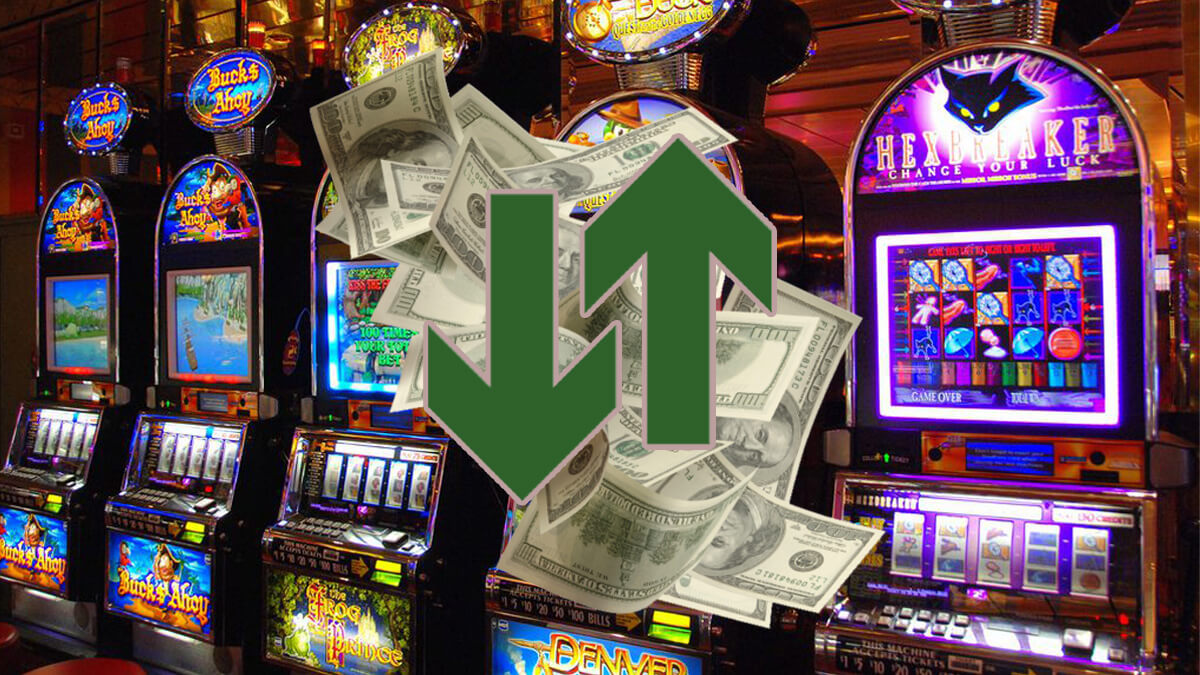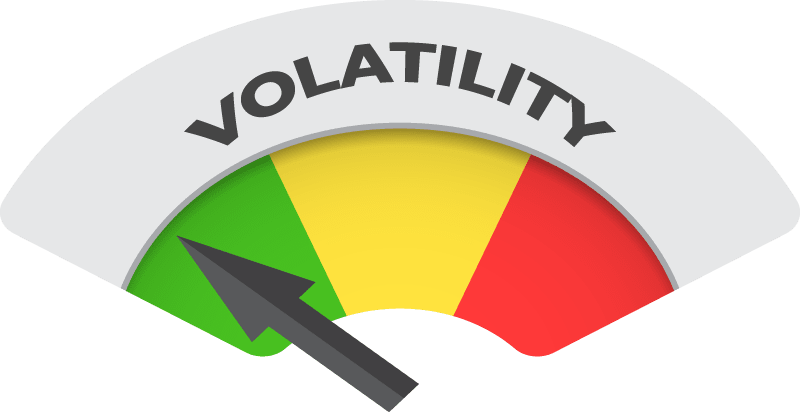Slot Volatility
Your chances of winning with slot machines vary from one game to the next. You may first look to a game’s return to player (RTP) to determine your odds. RTP shows how much you can expect to win from a game in the long run. If a slot features 97% RTP, then it’ll theoretically pay back $97 for every $100 wagered.
What is slot volatility? If you’re a casino slot game player, then chances are that you’ll have heard of and be informed on what the word ‘volatility’ means in relation to slot machines. However, if you’re a newcomer to the slot gaming world, then it’s quite important to learn about slot games and their volatility. Slot volatility, also called variance, refers to the level of risk that of a particular game. Simply put, the term refers to the frequency and cash value of payouts. High volatility slots yield few wins with high prices. Low volatility slots feature more payouts for lower amounts. Volatility or Variance is one of the few mechanisms that make a slot run. If you’re a newbie player, the slot volatility may have no meaning to you whatsoever. But experienced players will tell you that it is actually a very important factor to consider when playing online slots. One of the most consistent aspects of volatility relates to increasing bet size. There are a variety of ways this is done. One is through raising the minimum bet, particularly on popular or licensed themes. Another is through releasing a slot sequel with new features that require a higher bet. Slot Volatility The word volatile as applied to a slot machine basically refers to the amount of risk inherent to a specific game. It is used to describe how often and how much you can expect to win during your playing sessions. Some games can present long dry spells with occasional big wins.
Many online slots providers offer payout percentages for their games. You can usually find this info in the help screen or simply google it. Volatility is another important factor towards determining your winnings. It measures how closely short-term results line up with the RTP.

Unfortunately, volatility isn’t easily accessible. Most games don’t offer a volatility rating like they do payout percentages. Luckily, you can figure how volatile a slot is through one simple way. I’ll discuss this method along with other ways that you can measure your short-term odds of winning.
Why Is Volatility Important to Your Slots Results?
Slot machines offer a wide range of payouts. They deliver small prizes, jackpots, and bonuses. You earn more money for landing combinations with high odds. A prize that only hits 1 in every 500,000 spins will pay far more than a prize that’s delivered 1 in each 1,000 rounds. The former type of payouts are what make slot machines exciting. However, they also increase the volatility.
The house must retain its edge with each slot to make profits. Therefore, they can only program big payouts to hit every so often. Meanwhile, they program smaller prizes to be delivered more frequently. Low payouts help pad your bankroll as you chase bigger wins. In summary, larger payouts make slot machines more unpredictable. Low-paying prizes, on the other hand, decrease the volatility and see you win more often.
You should consider volatility whenever choosing a slot machine. Assuming you have a large bankroll, then you may not be too affected by short-term unpredictability. If you’re hoping to stretch out a small bankroll, then you should look for less-volatile slots. These will bring more payouts and keep you in the game longer.
Slot Machine Volatility Calculation

Jackpots Tell Everything
You might already know what kind of volatility you’re comfortable with. But how do you determine the predictability of a slot machine? In the best-case scenario, you’ll choose a game that offers a volatility rating. Some slot machines feature this rating in the help screen.
For example, you might see a game’s volatility rated at 3 out of 5 stars. This figure means that the game falls somewhere in the middle of the spectrum. Again, though, most slots don’t offer this information.
Here’s a comparison to illustrate this point:
Slot #1
- A slot machine offers a $3,000 progressive jackpot.
- Based on the top prize, this game’s volatility is likely very low.
Slot #2
- A slot boasts a $2 million progressive jackpot.
- This huge top prize indicates a highly volatile game.
Remember, this method is rather rudimentary. However, the jackpot can still provide quick information on a slot machine’s proposed volatility. You should focus on the seeded amount when dealing with progressive jackpots. After all, the seed amount represents what providers must pour into the game.
Two games could feature identical $100,000 jackpots. But if one is seeded at $10,000 and another at $5,000, then the latter will probably be less volatile. After all, the provider doesn’t need to put as much money into the game in this case.
Other Factors that Determine Volatility
You can only learn so much by looking at the jackpot alone. Therefore, you should consider the following factors to get a truly accurate determination of volatility.
Size of Other Payouts


The jackpot isn’t the only payout that can be large. Some slot machines feature several large prizes beyond the jackpot. I consider any payout worth 500 coins or more to be big. Assuming a game boasts 3-4 or more prizes like this, and then it’s quite volatile. In contrast, games that don’t feature many, or any, payouts worth 500 coins will pay more consistently. They don’t have large prizes that they must make up for by putting you through numerous losing streaks.
Bonus Rounds
Most slot machines offer bonuses, including free spins, pick’em rounds, re-spins, and second-screen rounds. These bonuses are meant to increase entertainment value by introducing different gameplay. However, they can also feature big prizes. In some cases, the top bonus payout is larger than the jackpot. Such bonus prizes ramp up a slot machine’s volatility.
Slot Volatility Calculation
Random Features
In addition to bonuses, slots can also offer random features, including extra wild symbols, additional scatters, and expanding wilds. For instance, a slot might randomly throw more wild symbols onto the reels. Or, it could turn a regular symbol into an expanding wild. Such features help turn losses into wins and wins into even bigger prizes. However, these random payouts also take away from the regular wins.
Cascading Reels
This feature refers to when symbols from winning combinations disappear. Icons from above fall into their places and potentially create more wins. Cascading reels give you an opportunity to net more payouts in a single round. However, they’re yet another feature that boosts the volatility level. After all, cascading reels give you the opportunity to net lots of payouts in a single spin. You’ll go through plenty of rounds where you don’t win anything with these games.
Number of Winning Ways
Many modern slots offer countless ways to win. Some games now boast hundreds of thousands or even millions of winning ways. These Megaways slots feature reels that hold a varying amount of symbols. Certain games allow reels to hold up to 12 icons. This format is further enhanced by the lack of paylines. With Megaways, you form wins by landing symbols in adjacent reels. I’ve seen online slot machines that offer between 117,649 and 60,446,176 ways. This sheer number of winning possibilities is definitely exciting. However, the fact that you can unlock so many ways also makes the payouts less consistent.
Should You Play Volatile Slot Machines?
Low Volatility Slot Machines
The key theme here is that volatile slots boast big jackpots and/or other features. These games are more exciting than less-volatile games, but they also don’t pay as frequently. You must weigh how you feel about waiting on payouts versus chasing big jackpots and bonus prizes. If the latter excites you most, then you shouldn’t have any trouble dealing with volatility.
However, you’ll likely experience frustrating times where you quickly lose your bankroll. These situations are often the result of volatile slot machines. Assuming you want to maximize your entertainment time while playing slots, then you should opt for more-consistent games. Sure, playing for 1,000-coin jackpots and only being able to unlock one bonus feature isn’t quite as thrilling. But you’ll win a higher volume of payouts on less-volatile slot machines.
Conclusion
If you’ve ever wondered why you go through extreme hot and cold streaks with slots, then you can look to volatility. Volatility determines how much you can expect to win in the short run. You can choose less-volatile games to boost the number of payouts you win in the immediate future.
Unfortunately, the same slots don’t offer big jackpots, Megaways, and multiple bonuses. You must take a greater risk when choosing slot machines that offer the latter. Everything comes down to your personal preferences. Are you hoping to stretch your bankroll, or spin for the largest jackpots and bonuses?
You can’t rely on jackpot size alone, though. Some slots are really volatile, because they offer large bonus prizes, Megaways, random features, and/or cascading reels. That said, you should take these other factors into consideration to get a more-accurate depiction on a game’s volatility.